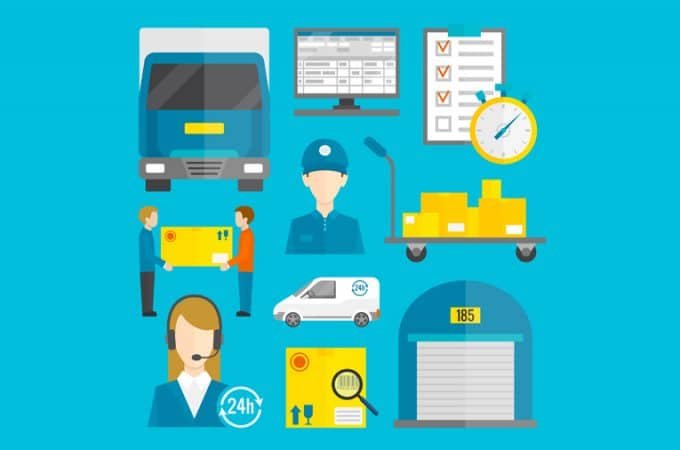
8 Digital Tools Every Business Needs To Incorporate Into Their Success Strategy
Almost every business today operates digitally. We no longer have to emphasize the importance of technology because so many companies are on their way to managing their work online. While companies may have moved online, managers may still forget the importance of digital tools and use them to flourish.
Even if they have an idea, they may invest in the wrong tools that may cost them more. So whether you’ve started a new business or are managing an established one, you need digital tools to help you get more sales and grab a bigger market share. That said, we’ve listed some tools below for you to consider.
- Use proper website building platforms
Websites are the bread and butter of your business. If you choose to build a website with the help of a poor digital platform, it will not provide visitors with a good experience. Companies need to invest in proper web-building tools. These include tools that allow developers to be as creative as possible without compromising on functionality. There are several benefits for using DigitalSupermarket and comparing the best web development tools available. Choosing the correct tools after careful consideration can help you take your business to new heights.
- Tools to monitor website performance
Creating a website is the first task; monitoring its performance comes next. There are tools available that help you monitor your website. Businesses that deal with thousands of consumers every day need to ensure that their website is working optimally. Website monitoring entails assessing how the content on the site is uploading. Are consumers able to do what they’re looking for, or are there too many redirects?
If the loading speed and the time it takes for images to load are high, visitors will bounce off. Moreover, you need to ensure your website is SEO-friendly. So invest in the correct tools to evaluate your website’s performance. You can opt for free tools or pay a premium for better services and features.
- Social media management tools
Social media is the fastest way for companies to communicate with their clients without going through hoops. However, unlike a personal social media profile, businesses need proper monitoring. Social media management tools help managers and marketers collect crucial customer insights. You can use these insights to design highly targeted marketing campaigns that drive more conversions. You can also deploy chatbots to automate CRM and provide customers with timely help.
- Project management systems
Project management systems help businesses manage all the projects that come their way. These tools ensure that work is on the right track and teams are meeting their objectives. Project management can help companies align their goals by providing them with a proper timeline of what work they should do. It also helps businesses in other ways, such as removing inefficiencies out of the way. It also helps them see a better vision for what companies could do by allocating resources to projects in a better manner.
- Email marketing tools
While emails are an archaic concept, they are still crucial in a robust digital marketing strategy. Obtaining customer information is good for business. When a consumer purchases a product or expresses interest in your products, you can acquire their email. And the next time you introduce deals and discounts, you can email your customer base to inform them. Email marketing tools help you send several emails in one go. They simplify the task of outreaching to several prospects and sharing newsletters. Therefore, invest in an excellent tool to manage your email marketing endeavors.
- Communication tools
Companies need to know how and where to find their consumers. When they invite a consumer back to their website, they should know how to talk to the consumer. This includes investing in machine learning and AI. So even if the business is new, features such as AI can help make consumers comfortable. They can get their questions answered and even get inclined to purchase. A communication system is there to talk to consumers and walk them through the learning and buying process. The idea is to get the client to purchase. Sometimes a client needs a little nudge before they buy products. A good communication toolcan ensure that purchases happen by using automatic recommendations and even a list of popular products. Communication also includes live chats and emails if a consumer doesn’t wish to speak with an AI.
- Customer relationship tools
Numerous CRM tools help marketers to track and interact with consumers. The tracking allows companies to see how their consumers think and what product caught their attention. CRM tools can also inform the company about bounce rates. If they’re too many clients walking away from a business, that is concerning. In such cases, companies can use other tools such as website building and analysis to fix the problem. Most of the issues are easy to solve, while some are hard. Some typical customer demands include more products, more variety, and affordable prices. The more you can provide solutions to these demands. You will stay ahead of the game.
- Storage tools
Data needs to bestored online. Companies need different storage tools for various data types. There are many storage platforms available for a business’s needs, including cloud storage. These storage tools help maintain and look after data without letting them get corrupted. It’s best to use professional storage tools. These tools come with authentication. So if you’re using a lousy platform, the system may be too weak to respond and give you glitches. If the storage tool is not easy to use and navigate, it can set a business back as a significant setback.
Wrap up
Digital tools are essential for businesses for many reasons. These tools are the best way to make companies transparent to their consumers. Some standard tools include communication systems, website builders, and analyzers. As long as businesses know what their consumers want, they can continue using tools. If companies don’t use tools enough, they may underestimate or provide consumers with the wrong service. It is essential to have tools to help you stay ahead of the curve in a competitive environment. It doesn’t take long for a company to climb up and fall, so it is best to use every toolkit and stay ahead.





